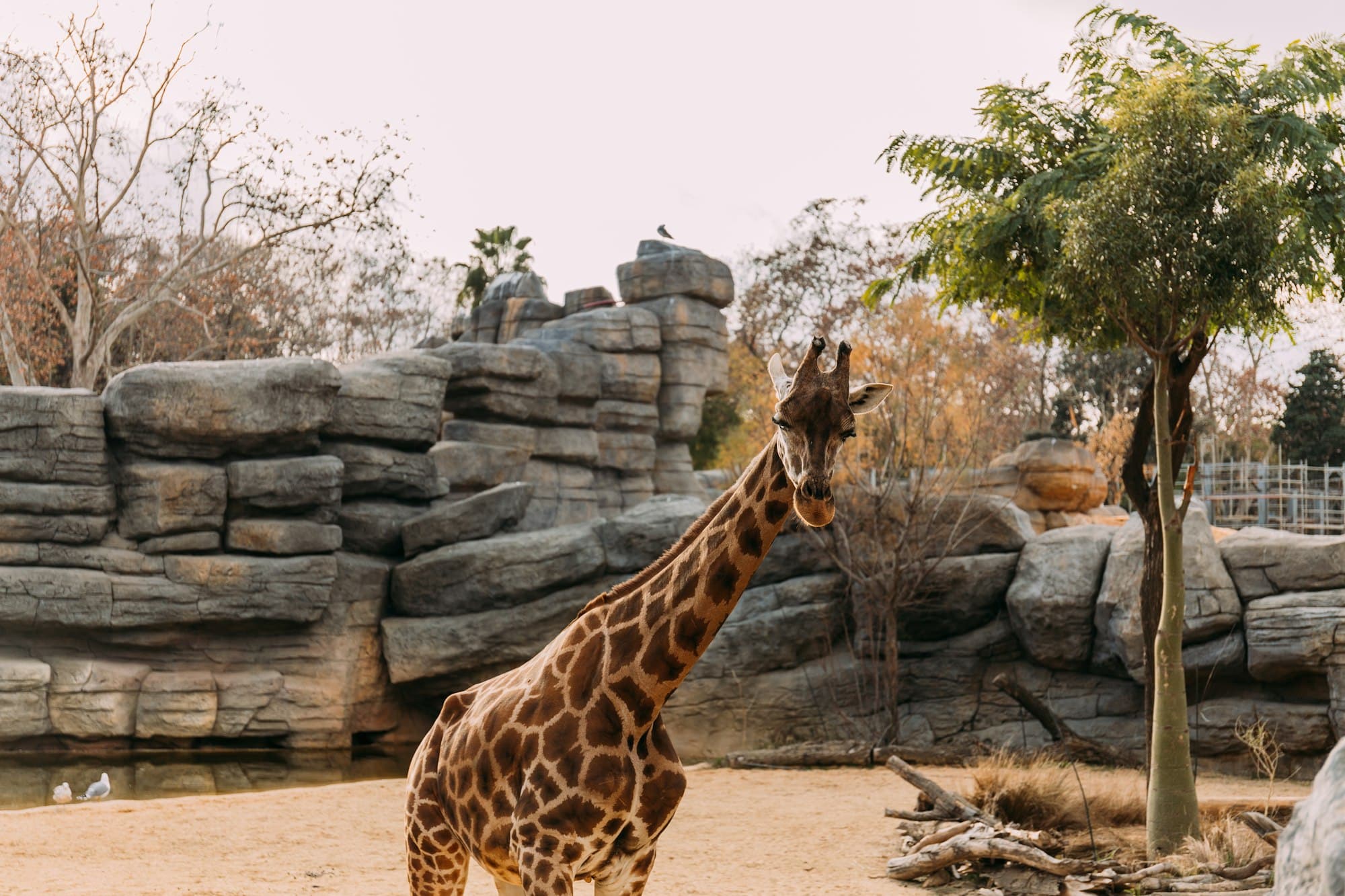Amphibians, a unique category of animals encompassing frogs, toads, salamanders, and newts, are exceptionally vulnerable to environmental changes. Conservation of these species is a pressing issue given their role in maintaining healthy ecosystems. Zoological societies in the UK are making significant contributions to preserving these threatened species at a global level. Using a diverse range of strategies, from captive breeding programs to creating educational exhibits, the impact of these societies extends far beyond their locales.
The Role of Zoological Societies in Amphibian Conservation
Zoological societies are not just places to visit on a family day out. They play a vital role in the fight against the extinction of threatened species around the globe. These organisations have become important players in the conservation of amphibians, a group of animals that are currently experiencing a rapid decline in numbers.
A lire en complément : Which native UK plant species should be prioritized in urban planting to maximize ecological benefits?
Data from the International Union for Conservation of Nature (IUCN) shows that approximately 40% of amphibian species worldwide are at risk of extinction. Zoological societies in the UK are keenly aware of this sobering statistic and are actively participating in conservation efforts.
One of the main methods they utilise is captive breeding. Zoological societies breed animals within controlled environments to prevent the decline of endangered species. For example, the London Zoo, one of the oldest in the world, houses a diverse range of amphibian species from around the globe. Many of these species are on the IUCN’s Red List, a comprehensive list of globally threatened species.
En parallèle : How can UK residents help reduce roadkill incidents by participating in wildlife crossing monitoring?
Zoological Societies and Education
Another critical role of zoological societies in the conservation of amphibians is education. Zoos provide a unique opportunity to educate the public about the threats facing wildlife and how they can help.
In a world where most people’s exposure to wildlife comes through digital mediums like Google images or TV documentaries, zoos give visitors a chance to experience these creatures up close. Many zoological societies are utilising this opportunity to highlight the plight of endangered amphibian species.
Interactive exhibits and informative displays are an effective way of demonstrating the importance of conservation. By showcasing the diverse variety of amphibian species, they can highlight the urgency of the situation and inspire visitors to contribute to conservation efforts.
Involvement in Global Trade Regulation
International wildlife trade, both legal and illegal, is a significant threat to many endangered amphibian species. Some species are captured in the wild and traded as exotic pets, while others are harvested for their skins or bodily substances.
UK zoological societies play a vital role in the regulation of this global trade. They work closely with international conservation groups, government bodies, and the IUCN to monitor and control wildlife trade. These partnerships help to ensure that any trade in amphibian species is conducted sustainably and ethically.
Additionally, zoological societies often contribute their expertise to the assessment of species’ conservation statuses. They provide data on population sizes, breeding success, and survival rates, which can be crucial in determining whether a species is threatened.
Research and Data Collection
Zoological societies are also crucial in research and data collection. They contribute to our understanding of amphibian biology, ecology, and the threats they face.
By maintaining captive populations of amphibians, zoological societies can conduct research that would be challenging or impossible in the wild. This can range from basic behavioural studies to more complex genetic research. The data they collect can be invaluable in informing conservation strategies.
In addition, zoological societies collaborate with academic institutions and researchers worldwide. They provide access to their animal collections for study, contribute their own data to global databases, and collaborate on research projects. Many UK zoos have partnerships with universities, facilitating a continuous exchange of knowledge.
Moreover, several UK zoological societies have made their animal data available on Google Scholar. This allows researchers worldwide to access a wealth of information about different species, their behaviours, habitats, and more.
Collaboration with Other Organisations
Conservation is not a solo act. To be most effective, it requires cooperation between many different organisations. Zoological societies often work in partnership with conservation charities, other zoos, and international organisations to protect amphibian species.
For instance, the Zoological Society of London (ZSL) is part of the Amphibian Survival Alliance, a global partnership dedicated to amphibian conservation. Collectively, these organisations work towards goals such as protecting critical habitats, supporting research, and raising awareness.
Zoological societies also collaborate with local communities in regions where threatened amphibian species are found. These partnerships can be crucial in protecting habitats and combating threats like illegal wildlife trade.
In sum, UK zoological societies play a significant part in global amphibian conservation. Through captive breeding, education, trade regulation, research, and collaboration, they are working tirelessly to protect some of the world’s most endangered animals and educate the public about the urgent need for conservation.
Utilising Google Scholar for Amphibian Conservation Research
A tool being widely utilised by zoological societies in the UK is Google Scholar, an online platform for academic research. This resource is a considerable asset when it comes to the collection, analysis, and dissemination of data regarding threatened amphibian species. Google Scholar provides access to a vast range of scholarly literature, from articles and theses to books and conference papers, offering a comprehensive view of the state of amphibian species worldwide.
An integral part of the zoological societies’ efforts in amphibian conservation involves the use of Google Scholar for assessing the IUCN’s Red List and the findings of the Amphibian Specialist Group. The Red List, maintained by the International Union for Conservation of Nature (IUCN), provides a detailed account of the global conservation status of numerous species. The Amphibian Specialist Group, part of the IUCN’s Species Survival Commission (SSC), focuses on the conservation of amphibians specifically.
The data from these resources, along with other research papers, offer valuable insights into factors such as climate change, habitat loss, and international trade, all of which contribute to the decline of amphibian species. By accessing the wealth of research available on Google Scholar, UK zoological societies can stay up-to-date with the latest findings, enabling them to adapt their conservation strategies accordingly.
Moreover, zoological societies are not just consumers of this research; they actively contribute to it. Their extensive knowledge of amphibian species, gleaned from captive breeding programs, educational initiatives, and other conservation efforts, is an essential source of data for the global scientific community.
Conclusion: UK Zoological Societies – Guardians of Global Amphibian Species
In conclusion, UK zoological societies play a pivotal role in the global preservation of endangered amphibian species. Through various means such as captive breeding, public education, involvement in trade regulation, research and data collection, and collaboration with other organisations, they are striving to protect these animals from the brink of extinction.
Their contribution to the IUCN’s Red List and the Amphibian Specialist Group’s findings highlights their commitment to the cause. Their use of Google Scholar exemplifies their dedication to staying abreast of the latest research to shape their strategies effectively.
Furthermore, their work extends beyond immediate conservation efforts. By educating the public about the situation facing amphibians, they are raising awareness and fostering a culture of conservation. They are not just safeguarding amphibian species for the present but are laying the groundwork for their continued survival in the future.
Despite the myriad of threats facing amphibians – from climate change and habitat loss to wildlife trade – the tireless work of UK zoological societies provides a beacon of hope. They exemplify the power of conservation, demonstrating what can be achieved when knowledge, resources, and passion come together in the service of protecting our planet’s biodiversity. These societies, along with zoos and aquariums worldwide, are truly the guardians of our global amphibian species.











